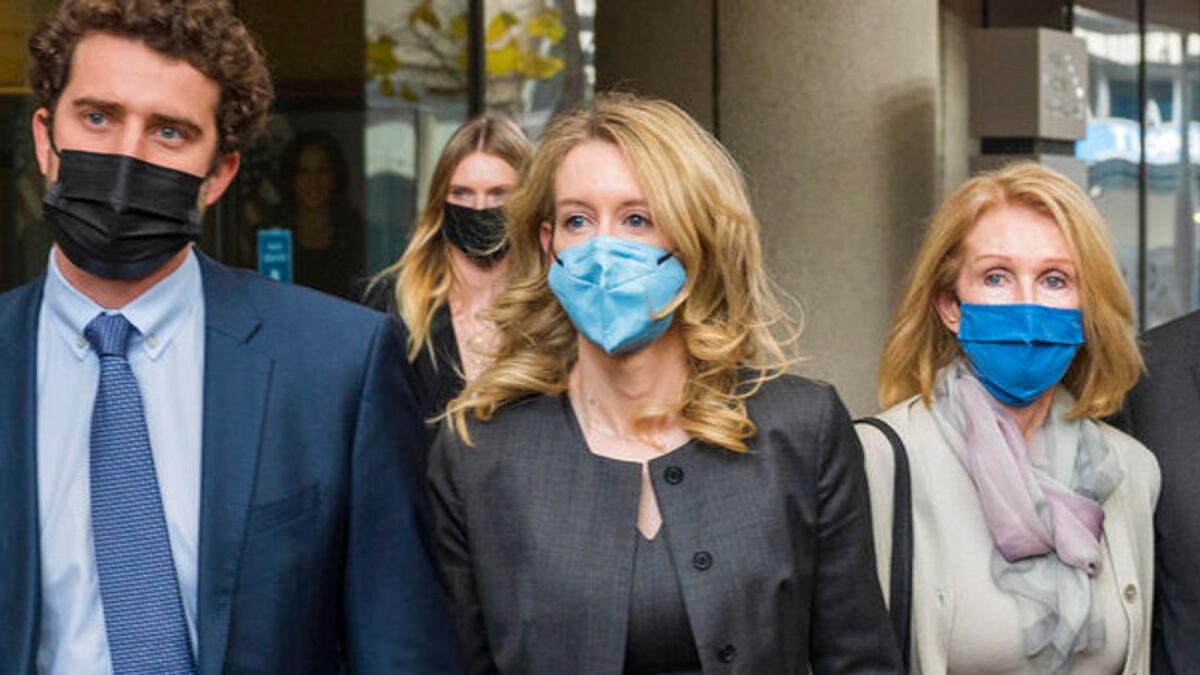Silicon Valley CEO Elizabeth Holmes Convicted of Fraud
In a monumental case that has shaken Silicon Valley to its core, Elizabeth Holmes, founder of startup Theranos, was found guilty on Monday of defrauding investors. The jury convicted the 37-year-old on two counts of wire fraud and two counts of conspiracy to commit fraud after seven days of deliberation. The verdict also exposed the dangers of the “fake it ’til you make it” mentality that is pervasive in the tech industry.
Holmes, once hailed as a visionary in the male-dominated world of Silicon Valley, claimed that Theranos had developed a groundbreaking medical device capable of detecting various diseases from a few drops of blood. However, the trial revealed that the technology was unreliable, forcing Theranos to secretly use conventional methods for testing.
Despite her claims of innocence, Holmes is now facing up to 20 years in prison for each count. The jury was unable to reach a verdict on three additional charges. Legal experts believe that although Holmes is unlikely to receive the maximum sentence, she will still face a significant amount of time behind bars.
The case against Holmes was built on the portrayal of her as a manipulative individual obsessed with fame and fortune. However, during her testimony, she painted herself as a victim of emotional and sexual abuse by her former lover and business partner, Sunny Balwani.
Holmes’ conviction may serve as a wake-up call for the tech industry, which has long relied on grand promises and exaggerations to attract investors. The downfall of Theranos has already been dissected in documentaries, books, podcasts, and will soon be explored in a Hulu TV series.
Holmes, who remains free on bond, did not show any visible emotion as the verdict was read. She was seen hugging her partner and parents before leaving the courthouse. US Attorney Stephanie Hinds, in a written statement, expressed her gratitude to the jury and emphasized the need for Holmes to be held accountable for her crimes.
When Holmes founded Theranos at the age of 19, she had a bold vision of revolutionizing the medical industry. She aimed to create a faster, more convenient, and less painful way to test for diseases using just a few drops of blood. However, her promises ultimately proved to be too good to be true.
Theranos attracted major investors, including media mogul Rupert Murdoch and software magnate Larry Ellison, raising over $900 million in funding. Holmes also managed to assemble an impressive board of directors, which included former US secretaries of state and defense.
But behind the scenes, Theranos’ technology was producing inaccurate results, leading to concerns about patient safety. When these issues were exposed by The Wall Street Journal and a regulatory audit, the company’s reputation quickly unraveled.
During the trial, Holmes admitted to some mistakes but maintained that she believed in the potential of Theranos’ technology. She placed the blame on Balwani, accusing him of abusive behavior and failure to address the company’s problems.
As she awaits sentencing, Holmes’ conviction serves as a cautionary tale for the tech industry and highlights the importance of integrity and transparency in entrepreneurship. Whether this case will bring about lasting change remains to be seen, but it certainly marks a significant moment in the history of Silicon Valley.

I have over 10 years of experience in the field of cryptocurrency and blockchain technology. I have attended numerous conferences and events around the world, and my work has been featured in major publications such as CoinDesk, Bitcoin Magazine, and Yahoo Finance.

